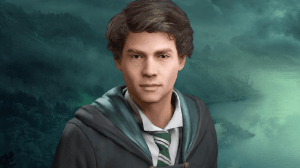
Over at BadAss Digest, Devan Faraci has written a piece titled “How I Learned To Stop Worrying And Love STAR WARS Again,” laying how his cynicism concerning Star Wars Episode VII and the coming prequel trilogy has faded away into hopeful optimism.
Videos by ComicBook.com
While the article is mostly rooted in Faraci’s personal history, how he spurned the series after the prequel trilogy and grew tired of it during the following years of fandom, but that information he has heard from sources at Lucasfilm have made him hopeful for the franchise’s future.
The optimistic turn is partly due to the talent involved with the sequel trilogy and spinoff films – named directors like Gareth Edwards and Rian Johnson – but also due to information about Episode VII’s story, which he does not share because of the potential spoiler effect.
One thing he does mention is that he has heard about Lucasfilm’s rather ambitious plan to turn Star Wars into a truly transmedia franchise, with the newly minted expanded universe all telling a cohesive, long-form story:
Marvel Studios has shown that multiple franchises can work together to tell one story, and they’ve even played with a bit of transmedia by having Agents of SHIELD peripherally involved. But Star Wars is about to blow that out of the water; there have been big meetings setting the future of the Star Wars universe, and these meetings are going to impact everything we see from Star Wars moving forward. Everything.
Faraci even quotes an unnamed source as making the bold claim, “We’re going to redefine longform storytelling.” What Faraci implies is that, going forward, all of the Star Wars books, cartoons, and comics will feed into the huge narrative that is being told in the films, as opposed to telling separate side stories that were carefully placed so as not to interfere with the central narrative of the films. Yes, you can watch the main Star Wars films without knowledge of what transpires in the other side material, but having read or view those materials will greatly enrich the experience.
The now defunct expanded universe of years gone by was always graded on tiers of canonicity. The only true canon were the six films of the saga, while everything else was subject to interaction or reinterpretations based on how much they contradicted those films and other works that were considered highly canonical.
Faraci mentions that an important part of this is the fact that Lucasfilm is now planning the larger Star Wars story well ahead of time, as opposed to the original films and even, to a certain extent, the prequels, which were conceived of sperately of each other, sometimes resulting in uncomfortable, unplanned situations like Luke and Leia’s clearly romantic relationship suddenly becoming creepy after they were revealed as brother and sister in Return of the Jedi (it’s bad in the movies, but it’s even worse in the old Marvel comics).
We should start seeing evidence of this as soon as September 2, when Star Wars: A New Dawn, the first entry into the Star Wars universe since Lucasfilm cleared the table, hits bookstore shelves. The novel will tell of how Kanan and Hera, two of the heroes of the upcoming animated series Star Wars Rebels, first met. Star Wars Rebels, which premieres in October, is itself rumored to have ties to Star Wars Episode VII, mostly through the show’s big bad, The Inquisitor.
We’ll see if these seeds all bear fruit when Star Wars Episode VII opens in theaters December 18, 2015.









